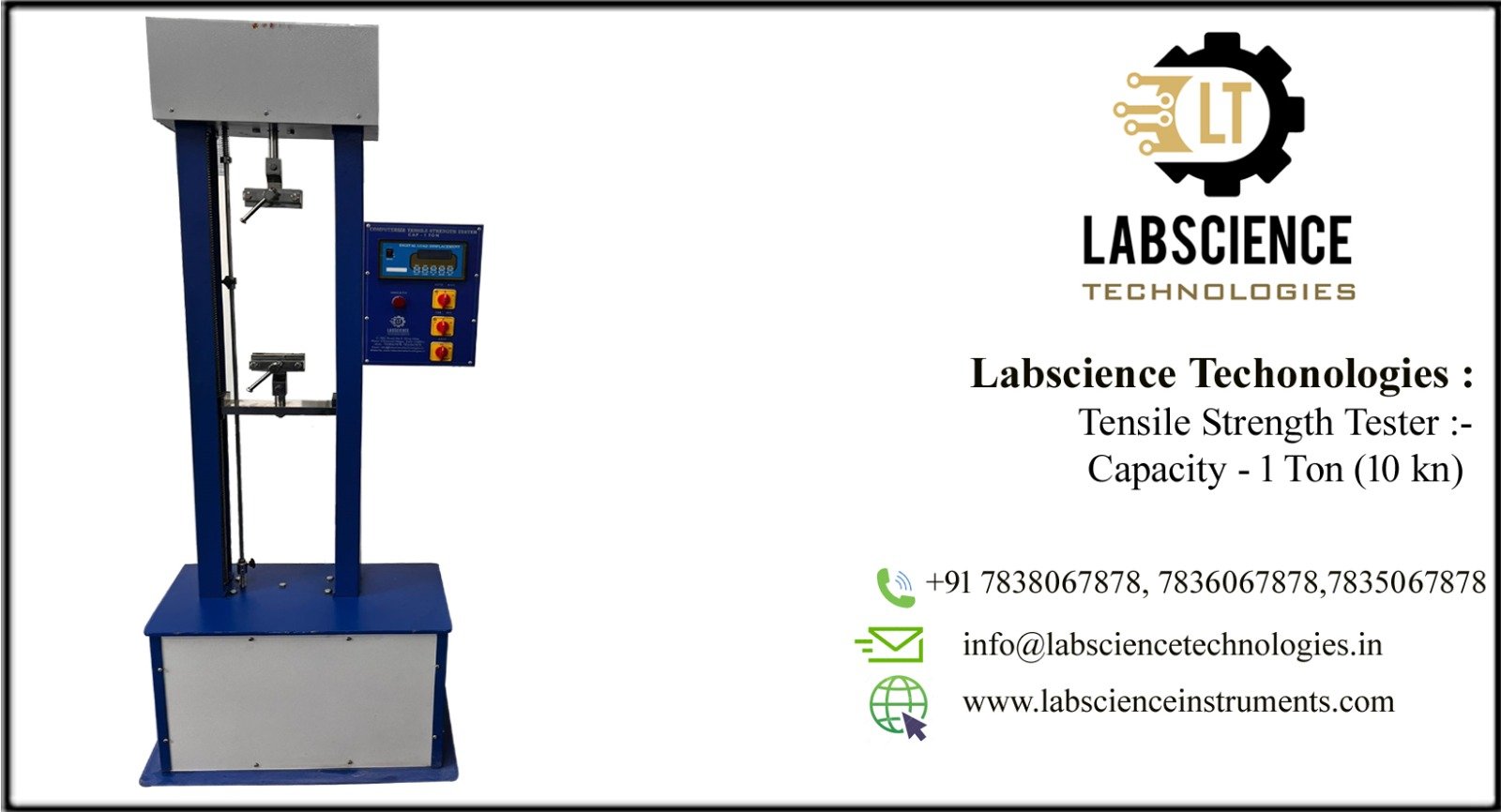How to Choose the Right Digital Tensile Strength Tester for Your Needs
How to Choose the Right Digital Tensile Strength Tester for Your Needs
Selecting the perfect digital tensile strength tester can be a challenging task, especially with the variety of options available on the market. Understanding your specific requirements and evaluating the features of available machines is essential to make an informed decision. This article provides a step-by-step guide to help you choose the right tensile strength tester for your needs.
What is a Digital Tensile Strength Tester?
Definition and Purpose
A digital tensile strength tester is a machine used to measure the tensile strength of materials. It determines how much force a material can withstand before it breaks, ensuring the product’s reliability and durability.
Applications
- Testing metals, plastics, and textiles
- Quality control in manufacturing
- Research and development
Why Choosing the Right Tester Matters
Accuracy and Reliability
The right tester ensures precise measurements, reducing the risk of errors in product quality assessment.
Efficiency and Cost Savings
Investing in an appropriate tester saves time and resources by optimizing testing processes.
Factors to Consider When Choosing a Digital Tensile Strength Tester
1. Material Type
Different materials require specific testing parameters. Consider the types of materials you will be testing, such as:
- Metals
- Plastics
- Textiles
2. Load Capacity
Choose a machine that can handle the maximum force required for your testing needs. Overestimating or underestimating load capacity can lead to inefficiency or machine damage.
3. Precision and Accuracy
Ensure the tester has high-precision load sensors to provide accurate results. Digital testers often come with advanced sensors that minimize errors.
4. Software Features
Modern digital tensile testers include software for data analysis, storage, and reporting. Look for machines with user-friendly software that meets your data requirements.
Key Features of an Ideal Digital Tensile Strength Tester
1. Automated Calibration
Automated calibration ensures consistent performance and reduces operator error.
2. Real-Time Data Display
Testers with real-time displays allow operators to monitor the progress and identify issues instantly.
3. Compatibility with Industry Standards
Select a tester that complies with standards like ASTM, ISO, or EN for global applicability.
4. Versatility
Choose a machine that can accommodate various sample sizes and shapes for flexibility in testing.
How to Evaluate Different Models
1. Compare Specifications
Evaluate the specifications of multiple models to ensure they align with your testing requirements.
2. Check for Durability
Look for machines made from high-quality materials to withstand prolonged use.
3. Read Reviews
Customer reviews and testimonials can provide valuable insights into a machine’s performance and reliability.
4. Request a Demonstration
Before purchasing, request a demo to see how the machine operates and whether it meets your expectations.
Common Mistakes to Avoid
1. Ignoring Future Needs
Select a tester that can accommodate your current and future testing needs to avoid frequent upgrades.
2. Overlooking Calibration Requirements
Regular calibration is essential for accurate results. Ensure the machine offers easy or automated calibration options.
3. Choosing Based on Price Alone
While cost is a factor, prioritize quality and features over price to ensure long-term value.
Top Benefits of Choosing the Right Tester
1. Improved Product Quality
Accurate testing helps identify material weaknesses, leading to better product design.
2. Enhanced Efficiency
Reliable testers streamline the testing process, saving time and resources.
3. Compliance with Standards
Meeting industry standards ensures your products are market-ready and globally accepted.
Future Trends in Digital Tensile Testing
Integration with AI
Artificial intelligence is being incorporated into tensile testers to improve data analysis and predictive insights.
Wireless Connectivity
IoT-enabled machines allow remote monitoring and control, enhancing operational efficiency.
Eco-Friendly Designs
Energy-efficient testers are becoming increasingly popular, reducing environmental impact.
Conclusion
Choosing the right digital tensile strength tester is vital for achieving accurate and reliable material testing results. By considering factors such as material type, load capacity, and software features, you can ensure the machine meets your specific needs.
Investing in the right tester not only enhances testing accuracy but also improves overall efficiency and product quality. With continuous advancements in technology, digital tensile testers are becoming more versatile, precise, and user-friendly, making them indispensable tools across various industries.
Kindly fill this form to demand a call-back to from our client support boss with esteeming and details.
+91 7838067878
Call Now
+91 7838067878

